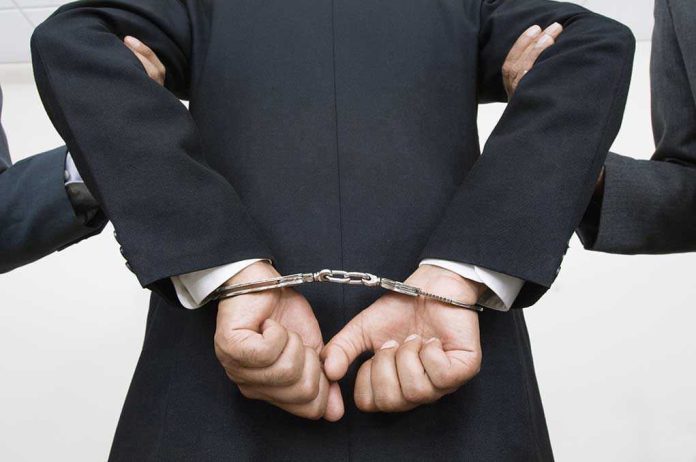
The arrest of a former priest turned Louisiana state official on charges of raping a disabled child exposes the persistent shadow of institutional secrecy and the overlooked vulnerabilities in the nexus of church and government.
Story Snapshot
- Mark Francis Ford, ex-priest and Louisiana official, arrested in Indiana for allegedly raping a disabled child he met through ministry.
- Alleged abuse spanned years, with recent incidents reported as late as 2023.
- Ford’s transition from religious authority to public office highlights gaps in vetting and oversight.
- Louisiana’s history of clergy abuse and recent legal reforms set the stage for renewed accountability.
When Authority Crosses Sacred and Civic Lines
Mark Francis Ford’s arrest stunned not only the Catholic community but also Louisiana’s political circles. Ford, once trusted as a guide for souls, later entered the corridors of power, serving under Governors Kathleen Blanco and Bobby Jindal. The charges—first-degree rape, sexual battery, kidnapping, and indecent behavior—are as grave as they come, and the victim, a disabled child, underscores the particular vulnerability at the center of this case. Ford’s ministry work facilitated his access to the alleged victim, raising the perennial question: how did institutions fail to protect those most at risk?
The timeline reveals alleged abuse beginning when the victim was just 10 years old, continuing for years and only surfacing in public view after legislative reforms enabled more survivors to speak out. Ford’s government service, following his departure from the priesthood, mapped onto a period in Louisiana history when the walls between religious and civic institutions were especially porous. Arrested in Indiana and held without bond, Ford awaits extradition to New Orleans, where the legal process will attempt to unravel years of secrecy.
Louisiana’s Unsettling Legacy of Clergy Abuse
Louisiana stands as a locus for clergy sexual abuse scandals, with cases dating back to the 1980s revealing both criminal and civil failures. The Archdiocese of New Orleans, Ford’s former employer, faces heightened scrutiny, not just for individual crimes but for systemic cover-ups. Recent legislative acts—removing statutes of limitations and extending survivors’ rights—created an environment where the past is never quite buried. High-profile arrests, like that of Lawrence Hecker, and multi-million dollar verdicts against church-run camps, have forced both religious and secular authorities to confront uncomfortable truths about their own oversight and accountability.
"REPORT: Ex-Priest Who Left The Church For Louisiana Government Arrested For Allegedly Raping Child" – Daily Caller #SmartNews https://t.co/m4OLdvbRdc
— Charles Seymour (@charliesey60) September 30, 2025
Advocates argue that Ford’s case is emblematic of broader dangers: when individuals wield authority in both sacred and governmental spheres, the risk of unchecked abuse multiplies. The Church’s historical reluctance to expose internal failings, coupled with the state’s sometimes lax hiring protocols, meant that Ford’s dual careers remained largely unexamined—until now. This case, like others before it, may prompt institutional reforms, but it also reveals how deeply entrenched patterns of silence and avoidance can be.
The Interplay of Power, Vulnerability, and Accountability
Ford’s dual identity—first as a priest, then as a state official—granted him credibility and access that few could question. This authority may have shielded him from scrutiny and enabled prolonged abuse. The victim’s disability only magnified their vulnerability, making the alleged crimes not just a breach of trust but a profound exploitation of power. Legal representatives for both sides brace for a contentious battle, with Ford’s defense likely to challenge evidence and due process, while the victim’s advocates seek justice and societal recognition of the harm inflicted.
The impact ripples outward: parishioners, government colleagues, and families across Louisiana now face renewed anxiety about the systems intended to protect them. The financial and reputational stakes for the Catholic Church and state agencies are high, with possible civil suits looming. Yet, beneath the headlines, survivors and their advocates see an opportunity—however painful—for legislative and cultural change. The removal of legal barriers has already encouraged more victims to come forward, and each new case increases pressure on institutions to act transparently.
Sources:
ICE/DOJ press release: Precedent cases involving ex-priests and legal consequences.
Lamothe Law Firm: Legal commentary on Ford’s arrest and implications.
AOL News: Coverage of Ford’s arrest and the broader abuse scandal.







